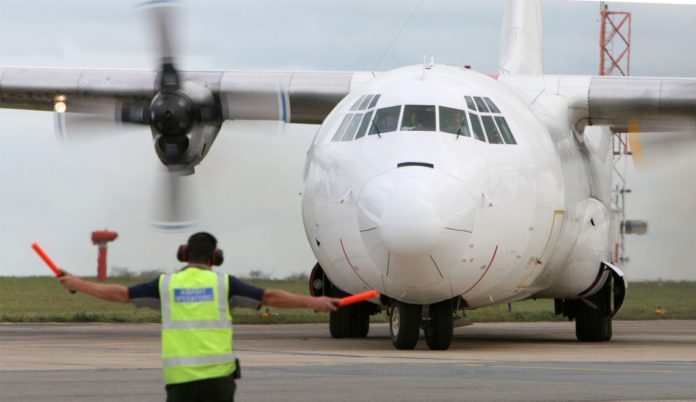With Colorado State’s forecasting team predicting nine hurricanes, including four major ones,air charterer Chapman Freeborn is gearing up for the coming season, which officially began on June 1.
The specialist, Part of Avia Solutions Group, recently formed an Aviation Emergency Service (AES), division.
Senior vice president of cargo for the Americas, Jack Burt (pictured, below), says that CF is typically required to transport power generation equipment, along with supplies like water and foodstuffs, along with medical supplies such as mobile hospitals, equipment and medicines.

He explains: “While every natural disaster is unique, preparedness goes a long way. We have over 50 years’ experience, and an unrivaled global network of airlines and partners. Chapman Freeborn is mission ready and capable of responding to the most difficult logistical challenges. We can mobilize an aircraft and crew within just a few hours to respond to emergency situations. In extreme circumstances, our response time can be 60 minutes or less.”
The charter firm carries out thorough business continuity planning and staff planning to ensure the physical preparedness of offices. It also has its own evacuation contingencies in place.
“Our Cargo team is prepared with rapid response cargo transportation solutions in the Americas,” Burt continues. “This means having aircraft, trucks, ground handling agents and logistics service providers based in the region and ready to respond to any hurricane threat.”
As a charter broker, Chapman Freeborn has long-standing relationships with partners around the world, enabling the quick deployment of any size aircraft. “
But the final element of its preparation is the team’s mental resilience and focus. Burt says: “Hurricane season is an unpredictable and stressful time. We conduct regular training exercises to support the team. Furthermore, having deep know-how and an experienced leadership team helps us remain confident and calm under pressure.”
When Chapman Freeborn is called into action after a hurricane, close coordination with governments, NGOs and private sector partners is essential. “Urgent humanitarian relief flights before or after a large hurricane require extensive collaboration. This is normally led by our staff, which ensures there is connectivity and transparency between the key parties in the humanitarian supply chain. These include airlines, airport authorities, civil aviation authorities, NGOs, ground handling agents, trucking agents, logistics partners, shippers and consignees,” explains Burt.
“You may be one of the first flights into a destination recently impacted by a storm. Airport conditions may be poor or unknown, and communication channels are often slow or non-existent. Naturally, this creates difficulties in planning a charter flight.”
CF works with different airports right up until departure to confirm which is safest to use, continuously monitoring forecasts and creating multiple contingency plans.
Burt adds: “Another challenge of hurricane relief flights is that you may be required to deliver large volumes of cargo to remote or hard-to-access locations, such as small Caribbean or Hawaiian Islands. In 2017, our Cargo team operated hundreds of charter flights to Puerto Rico following Hurricane Maria. We transported critical supplies and infrastructure equipment to assist in the island’s rebuild.”
CF has flown cargo and passenger charters to remote and challenging locations including Pakistan, Haiti, Nepal, Yemen, Darfur, South Sudan and the Democratic Republic of Congo.









